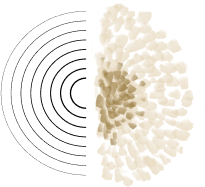The future of healthcare, Covid-19 and beyond: can AI augment virtual physician care?


Today, we are proud to announce a new technological milestone. Kintsugi, a recent recipient of the National Science Foundation SBIR grant for developing new AI voice biomarker technology, is now able to score depression and anxiety on industry-standard PHQ-9/GAD-7 tests from 2-3 min of speaking. We’re conducting additional studies for Parkinson's and Alzheimer's and excited to be working with all the leading healthcare companies in augmenting virtual physician care. “We couldn’t be more excited to work hand-in-hand with the world’s best physicians in creating voice biomarker standards to facilitate the otherwise difficult collection of paper responses to PHQ-9 and GAD-7. As we have seen with the rise of COVID cases, testing is everything in managing patient outcomes,” says Grace Chang, Founder/CEO and Principal Software Engineer.
As Virtual Health companies extend much-needed 24/7 support during this COVID-19 crisis, telemedicine is providing reliable, safe at-home care for millions across the country who are trying Virtual Health for the first time. In our latest interview with Greg Truex, Managing Director at JD Power, “Telehealth is the best consumer healthcare experience you've never tried, and over 80% who have tried, would definitely re-use telehealth. Just a year ago, only 17.2% of consumers were aware that telehealth was a viable alternative to a doctor’s office, hospital, ER, or urgent care clinic visit.”
In a stunning breakthrough, the Kintsugi team has developed a unique set of machine learning algorithms to analyze voice features and measure depression and anxiety severity in real-time, enabling clinicians additional visibility on a patient’s emotional state and ensuring proper followup is included at the time of a virtual visit, typically 5-10 minutes long. “We have always believed that mental health is as important as physical health, and now that we have a standard measurement in production, one that is language-agnostic—we can provide rigorous scientific testing on what factors actually improve a patient’s mental health on the standardized PHQ-9 and GAD-7 tests,” according to Rima Seiilova-Olson, Founder and Machine Learning Scientist.
Earlier this year, the team embarked on developing tools for self-help, and in the process, developed new, innovative, U.S. patent-pending workflows to help individuals at the time of need. Kintsugi is in over 250 international cities, and both founders, who faced similar challenges in access to mental health, sought to create a new supportive community working directly with healthcare change leaders in forging a new future of at-home care.
About Kintsugi
Kintsugi is talk therapy software for mental health and based in San Francisco, CA. Kintsugi has developed a U.S. Patent-Pending voice journaling platform to detect emotional patterns and create personalized workflows for improving mental well-being. Stressed individuals have a reliable tool to feel heard and understood, and healthcare practitioners have a fast voice diagnostic via the Kintsugi API endpoint. In over 250 international cities, Kintsugi was awarded the National Science Foundation SBIR Phase I grant in 2019 for developing new artificial intelligence technologies.
Join our mailing list for regular updates from Kintsugi



